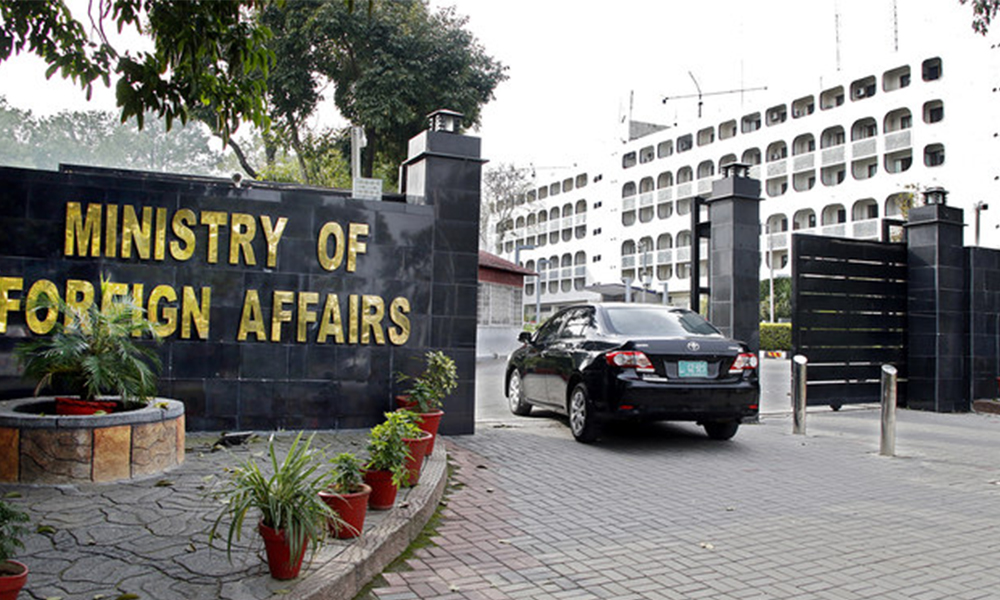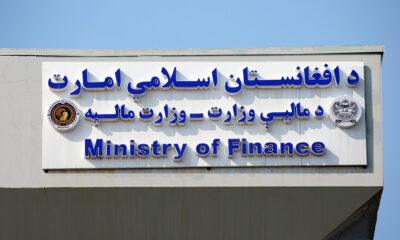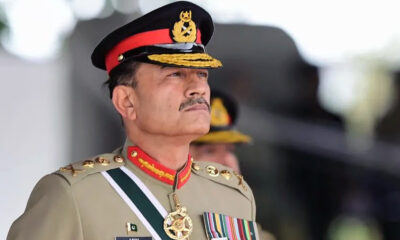Latest News
White House receives ‘intel’ on Chinese bounties against US forces

The Trump administration is reportedly declassifying as-yet uncorroborated intelligence, that claims China offered to pay non-state actors in Afghanistan to attack US forces, two senior administration officials tell Axios.
The Chinese embassy in Washington DC did not respond to a request for comment by Axios and according to the report outgoing President Donald Trump is not believed to have discussed the matter with China’s President Xi Jinping.
It was not immediately clear whether any members of Congress or President-elect Joe Biden have been briefed, though Biden now has access to the President’s Daily Brief.
The intelligence was included in the president’s briefing on December 17, and Trump was verbally briefed on the matter by National Security Advisor Robert O’Brien, officials told Axios.
According to the Axios article, administration officials across multiple agencies are currently working to corroborate the initial intelligence reports.
Axios was not able to visually inspect any reports detailing the intelligence but they reported stated a summary was described by the officials over the phone.
Axios meanwhile stated that if this intelligence were to be confirmed, it would represent a dramatic strategic shift for China, and sharply escalate tensions between China and the US and on the other hand, if the intelligence does not prove accurate, it raises questions about the motivations of the sources behind it as well as the decision to declassify it.
China has long played a quiet diplomatic role in Afghanistan, inviting Afghan Taliban officials to Beijing to discuss plans for a peace deal and encouraging an Afghan-led solution, though Chinese-made weapons and financing have at times also flowed into the conflict there.
But one senior official told Axios “like all first reports, we react with caution to initial reports” but “any intel reports relating to the safety of our forces we take very seriously.”
Another source said: “The US has evidence that the PRC [People’s Republic of China] attempted to finance attacks on American servicemen by Afghan non-state actors by offering financial incentives or ‘bounties’,” and said the National Security Council “is coordinating a whole-of-government investigation.”
He would not say whether he was referring to the Taliban, or give details about who “non-state actors” were, Axios reported.
The timing of the alleged bounty offer is unclear. The source would say only that this happened some time after late February when the US struck its deal with the Taliban.
This latest development comes just days after Afghan security officials announced they had discovered an alleged Chinese spy ring operating in the country apparently seeking to target Uyghurs.
Last week, officials confirmed that Afghanistan’s National Directorate of Security (NDS) detained 10 Chinese nationals on charges of espionage after busting the alleged spy ring.
The Hindustan Times reported that Beijing had tried to persuade the Afghan government to keep the case under wraps as it is a huge embarrassment for the communist country, people familiar with the matter told the Indian daily.
A senior diplomat in Kabul told the Hindustan Times that two of the 10 Chinese nationals were in touch with Haqqani Network and that Li Yangyang, one of the detainees, had been operating since July or August.
The Times reported the alleged spy was arrested by the NDS on December 10.
Another detainee, Sha Hung, reportedly ran a restaurant in Kabul’s Sherpur area, in the city center.
The Times stated that while both Chinese nationals were in touch with Haqqani Network, Li was gathering information about al-Qaeda, Taliban, and Uyghurs in Kunar and Badakhshan provinces.
Chinese ambassador to Afghanistan Wang Yu has reportedly been briefed about the situation by Vice President Amrullah Saleh, who in turn allegedly threatened Beijing with criminal proceedings unless it apologizes formally and admits to the violation of international protocol.
Afghanistan shares its border with China’s Xinjiang, home to Uighur Muslims who seek refuge in the country.
Latest News
Pakistan summons Afghan diplomat over deadly attack in North Waziristan

Pakistan on Friday summoned Afghan Deputy Head of Mission in Islamabad to convey “strong demarche” over a deadly attack on a military camp in North Waziristan District that killed four Pakistani soldiers.
In a statement, Pakistan’s Ministry of Foreign Affairs said the attack was carried out by a faction of Tehreek-i-Taliban Pakistan (TTP).
The statement said that Pakistan conveyed “grave concern over the continued support and facilitation” provided by the Islamic Emirate to TTP.
Pakistan has demanded “a full investigation and decisive action against the perpetrators and facilitators of the terrorist attacks launched against Pakistan from Afghan soil.”
It urged the Islamic Emirate “to take immediate, concrete and verifiable measures against all terror groups operating from its territory, including their leadership, and deny the continued use of Afghan soil for terrorism against Pakistan.
According to the statement, the Islamic Emirate has been “categorically informed that Pakistan reserves the right to defend its sovereignty and protect its citizens, and will take all necessary measures to respond to terrorism originating from Afghan soil.”
Pakistani officials have repeatedly claimed that attacks in the country are originated from Afghan soil, a charge the Islamic Emirate denies.
Latest News
Uzbek president stresses Afghanistan’s role in regional economic projects

President of Uzbekistan Shavkat Mirziyoyev has underscored Afghanistan’s continued importance in regional cooperation, saying the country remains one of the key areas of interaction among regional partners.
Addressing the first summit of the “Central Asia Plus Japan” dialogue, Mirziyoyev said participating countries share a common aspiration to see Afghanistan become peaceful, stable, and oriented toward meaningful development.
The Uzbek president praised Japan’s longstanding and consistent support for Afghanistan, noting that Tokyo has for many years been among the leading donors and partners assisting the Afghan people.
He expressed confidence that coordinated efforts and joint contributions by regional countries and Japan would help improve living standards in Afghanistan, advance socio-economic and infrastructure development, and facilitate the country’s active involvement in regional economic projects.
Latest News
Japan allocates nearly $20 million in humanitarian aid for Afghanistan

The Embassy of Japan in Afghanistan announced on Friday that the country has allocated $19.5 million in humanitarian assistance to Afghanistan.
In a statement, the Japanese Embassy said it hopes the aid will help bring positive change to the lives of vulnerable Afghans.
According to the statement, the assistance will cover the basic humanitarian needs of vulnerable communities in Afghanistan.
The embassy added that the aid will be delivered through United Nations agencies, international organizations, and Japanese non-governmental organizations operating in Afghanistan.
Japan’s total assistance to Afghanistan since August 2021 has reached more than $549 million.
-

 Latest News4 days ago
Latest News4 days agoIEA supreme leader stresses enforcement of Sharia law and sincere public service
-

 Sport4 days ago
Sport4 days agoILT20: Sharjah Warriorz secure 11-run victory over Gulf Giants
-

 Business4 days ago
Business4 days agoAfghanistan, India discuss expanding investment opportunities
-

 International Sports3 days ago
International Sports3 days agoIPL 2026: Teams take shape after auction as franchises balance star power and depth
-

 Sport4 days ago
Sport4 days agoAbu Muslim Farah crowned champions of fifth season of Afghanistan Champions League
-

 International Sports3 days ago
International Sports3 days agoILT20: Abu Dhabi Knight Riders end Desert Vipers’ unbeaten run in dramatic one-run win
-

 Latest News4 days ago
Latest News4 days agoEU and IFC launch €5 million program to support Afghanistan’s private sector
-

 Latest News4 days ago
Latest News4 days agoHigh-level Kyrgyz delegation arrives in Kabul





























